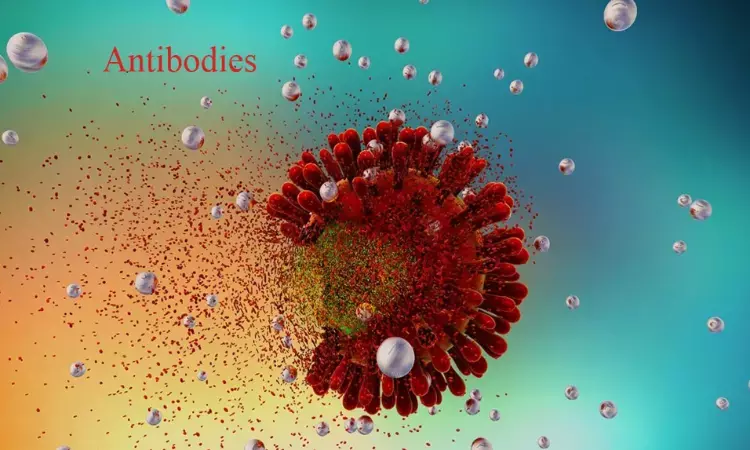- Home
- Medical news & Guidelines
- Anesthesiology
- Cardiology and CTVS
- Critical Care
- Dentistry
- Dermatology
- Diabetes and Endocrinology
- ENT
- Gastroenterology
- Medicine
- Nephrology
- Neurology
- Obstretics-Gynaecology
- Oncology
- Ophthalmology
- Orthopaedics
- Pediatrics-Neonatology
- Psychiatry
- Pulmonology
- Radiology
- Surgery
- Urology
- Laboratory Medicine
- Diet
- Nursing
- Paramedical
- Physiotherapy
- Health news
- Fact Check
- Bone Health Fact Check
- Brain Health Fact Check
- Cancer Related Fact Check
- Child Care Fact Check
- Dental and oral health fact check
- Diabetes and metabolic health fact check
- Diet and Nutrition Fact Check
- Eye and ENT Care Fact Check
- Fitness fact check
- Gut health fact check
- Heart health fact check
- Kidney health fact check
- Medical education fact check
- Men's health fact check
- Respiratory fact check
- Skin and hair care fact check
- Vaccine and Immunization fact check
- Women's health fact check
- AYUSH
- State News
- Andaman and Nicobar Islands
- Andhra Pradesh
- Arunachal Pradesh
- Assam
- Bihar
- Chandigarh
- Chattisgarh
- Dadra and Nagar Haveli
- Daman and Diu
- Delhi
- Goa
- Gujarat
- Haryana
- Himachal Pradesh
- Jammu & Kashmir
- Jharkhand
- Karnataka
- Kerala
- Ladakh
- Lakshadweep
- Madhya Pradesh
- Maharashtra
- Manipur
- Meghalaya
- Mizoram
- Nagaland
- Odisha
- Puducherry
- Punjab
- Rajasthan
- Sikkim
- Tamil Nadu
- Telangana
- Tripura
- Uttar Pradesh
- Uttrakhand
- West Bengal
- Medical Education
- Industry
67.6 percent population has Covid antibodies, finds ICMR 4th national serosurvey: Minister

NEW DELHI: Of India's population above the age of six, 67.6 percent have developed antibodies against Covid-19, found the Indian Council of Medical Research's (ICMR) fourth national serosurvey done between June 14 and July 6, the Lok Sabha was informed on Friday.
Also, 85.2 percent of the surveyed healthcare workers had antibodies against Covid-19.
Also Read:COVID-19 antibodies persist at least nine months after infection
Asked whether the government is planning a nationwide Covid serosurvey to determine the prevalence of coronavirus antibodies in the community, Minister of State for Health Bharati Pravin Pawar, in a written reply, said four rounds of Covid-19 national serosurveys have been conducted by the ICMR.
The fourth round of the survey covered 36,227 individuals to estimate seroprevalence among children aged 6-17 years, adults and healthcare workers. It was conducted in the same 70 districts from 20 states and a Union Territory selected during the previous three serosurveys.
"The seroprevalence estimates from the surveys has helped to track the extent of spread of infection in age groups and geographical locations (such as districts, rural/urban areas) over time as well as guide the response. The results of the serosurvey were widely disseminated to the respective state and district authorities," Pawar said in the reply.
On whether the government has also asked states to carry out their own localised surveillance exercises to assess the prevalence and spread of infection, she said many states and cities have conducted serosurveys.
Metropolitan cities such as Delhi, Mumbai, Pune, Chennai, Ahmedabad and Hyderabad have reported seroprevalence ranging between 17.6 percent and 56 percent at different time points, the minister said.
On the other steps taken by the Centre to stop the spread of coronavirus in the country, Pawar said health is a state subject but the Government of India has provided the required technical support and also supported the states through logistic and financial support to further strengthen the existing health infrastructure.
Elaborating on some of the initiatives, she said the government, to supplement hospital facilities has roped in tertiary care hospitals under ESIC, Defence, Railways, paramilitary forces, Steel Ministry and others. Many large temporary treatment facilities were established by the DRDO to manage the surge in Covid-19 cases in the country.
"Due to concerted actions of central and state Governments, isolation bed capacity and ICU bed capacity which was only 10,180 and 2,168 before the first lockdown (as on March 23, 2020) is being enhanced continuously and is currently at 18,21,845 isolation beds and 1,22,035 ICU beds (as on July 20 July 2021)," the reply stated.
Pawar said the daily liquid medical oxygen production, which was about 5700 MTs daily in August 2020, has been increased to 9,690 MTs as of May 13, 2021. This was done by enhancement of liquid medical oxygen production in steel plants as well as in other liquid medical oxygen plants.
A system for real-time monitoring of oxygen production in steel plants and distribution of oxygen to states and UTs was also put in place. Restrictions were imposed on the industrial use of oxygen.
Besides, a dynamic and transparent framework for allocation of medical oxygen in consultation with states and Union Territories and all the stakeholders such as relevant ministries, manufacturers and suppliers of liquid oxygen has been prepared, the minister told the Lok Sabha
Online digital solutions such as an oxygen demand aggregation system and an oxygen digital tracking system have been developed to ascertain the demand for medical oxygen from all medical facilities and to track their transportation, she said.
In order to avoid wastage of medical oxygen, guidelines on rational use of oxygen were issued on September 25, 2020, and further revised and disseminated to states on April 25, 2021, the minister added
Medical Dialogues Bureau consists of a team of passionate medical/scientific writers, led by doctors and healthcare researchers. Our team efforts to bring you updated and timely news about the important happenings of the medical and healthcare sector. Our editorial team can be reached at editorial@medicaldialogues.in.


